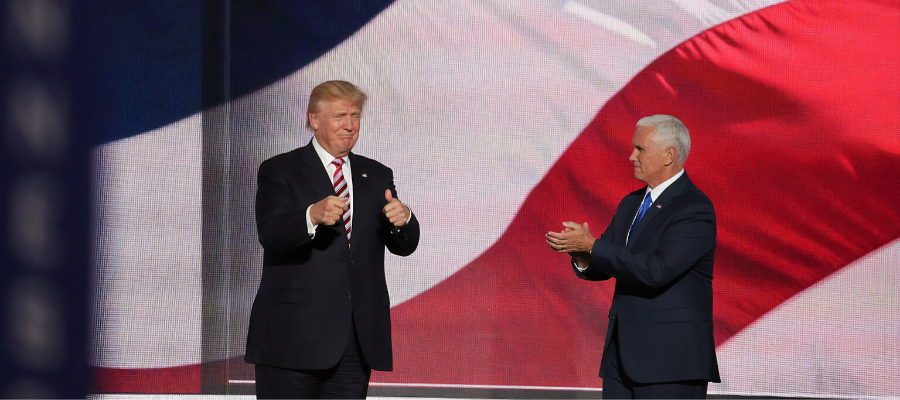Why do some people have a strange desire to do weird things for no (good) reason? There's something fascinating about kids who eat laundry soap as part of a “challenge,” or people who deliberately... Read more

If fact checkers are to be trusted even a little, one rare certainty of this last election is that Donald Trump is a fountain of falsehoods. Politifact, for example, found that Trump issued more pants-on-fire falsehoods than all other primary and general candidates combined (see point 4.).
Trump’s falsehoods range from egregious exaggeration to wholesale invention.
For an example of the former (exaggeration), take what he said to the New York Times Editorial Board about insurance premiums under the Affordable Care Act (AKA Obamacare): “People are paying a 100 percent increase and they’re not even getting anything, the deductibles are so high, you have deductibles $16,000.” But as the Times points out, the usual increase is 20 to 40 percent (only 100 percent in extremely rare cases), while the maximum out-of-pocket cost is $14,300. So Trump is talking about something more extreme than the maximum case as if it were representative.
For an example of the latter (invention), Trump said at a rally in Michigan that he had been “honored” five years ago as “Man of the Year in Michigan.” Unfortunately, there doesn’t seem to be any such award, and any award that comes close to it wasn’t won by Trump—ever.
You might conclude from these and other examples that Trump is an inveterate liar, whose lies disguise the truth in a way that causes favor among gullible constituents.
But here’s another hypothesis: Trump is bullshitting.
What, you ask, distinguishes lying and bullshit?
Harry Frankfurt’s classic essay, On Bullshit, draws the distinction like this. Lying is intentionally saying something that is known to be false. But bullshitting is saying something without regard to whether it is true or false. The bullshitter just doesn’t care about whether his utterance is true. Furthermore, Frankfurt writes, “It is impossible for someone to lie unless he thinks he knows the truth. Producing bullshit requires no such conviction.”
Some simple examples of bullshit, to give you a sense of these points, can be found in advertising. The ad slogan from Pearl, one of the world’s biggest drum companies, is “Pearl, the best reason to play drums.” Or take the classic Burger King slogan: “Have it your way.” In point of fact, Pearl is not the best reason to play drums; loving rhythm is a far better reason. And in point of fact, you never really got it your way at Burger King; you only get to select from one of a number of pre-fab options, with little more than the power to hold the pickles. So were the marketing people at Pearl and Burger King lying? No, because it’s quite unlikely that they had any concern—let alone knowledge—about whether their statements were true…they just sounded good, and they could sell.
So when we ask whether Trump is lying or bullshitting, we have to focus on two things. First, does he even know whether what he is saying is true? Second, does he care whether what he’s saying is true? If the answer to either or both of these questions is “no,” then we have bullshit, not lying. (Technical point: note that we can see a distinction here within the category of bullshit. Some bullshit consists of sentences that are clear enough to be true or false, like Trump’s claim about the award in Michigan. But other bullshit is so opaque that it can’t be counted true or false either way, which Pennycook and colleagues call “pseudo-profound” bullshit.)
No doubt, sometimes Trump lies and sometimes he bullshits. And it would take more space than I have to review enough evidence to establish rigorously which way the balance tilts. But my firm impressions are (1) that he often just doesn’t know whether what he’s saying is true (consider his out-of-date assertions about Chinese currency manipulation, for example) and (2) that he often doesn’t care. Rather, he’s mainly focused on saying whatever fits the narrative that appeals to the less educated constituency who voted for him, and that narrative includes demonizing China.
Effectively, Trump is doing just what Burger King and Pearl did: pushing a narrative that gives one’s brand more reach. In other words, bullshitting.
Aside from psychological interest, does it matter whether Trump is lying or bullshitting? Is one act more immoral than the other?
I don’t know the answer to the moral question, though I suspect that, in the long run, lying and bullshitting are equally bad. And in a sense, the obvious response to lies and bullshit is the same: you should combat them with clear statements of well-researched information, attempting as assiduously as possible to speak plain fact.
But beyond that, I think how we respond to the liar and the bullshitter could differ in important ways. I think calling attention to the characteristic ignorance—plain lack of knowledge—of the bullshitter is an important thing to do, and it might be effective in a way that accusations of lying often are not. Accusations of lying are often harder to swallow, just because lying is regarded as more taboo in our culture. So it might be easier to establish that someone just doesn’t know anything about the subject matter of which he speaks (and hence is bullshitting); a few factual touch points can make the bullshitter’s ignorance relatively obvious (as in the case of Trump’s ignorance over Chinese currency manipulation, mentioned above, or in the case of his utter ignorance of any evidence that would support his wild claims about illegal voting).
And finally, if our goal is ultimately a more truthful public discourse, it’s incumbent on us to label acts with correct terms, which means calling lies lies and bullshit bullshit: Trump most likely lies often enough, but if I’m right, the majority of his falsehoods are just bullshit.